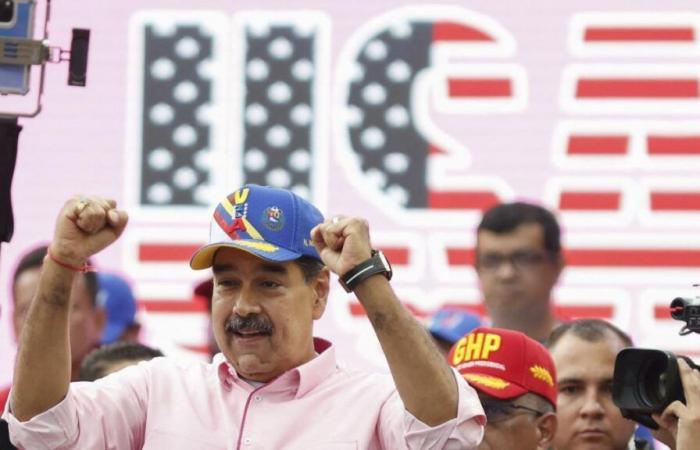The Venezuelan oil industry After years of little investment despite the immense flow of money it produced, It collapsed with the sanctions imposed by the United States, breaking the heart of the economy of the Caribbean country highly dependent on crude and its derivatives. Now that Chevron has until May 27 to cease operations in that nation, the uncertainty reigns for what is coming.
However, Nicolás Maduro says that Venezuela will continue to operate in Campos de Chevron after leaving for sanctions from the United States. Is this real?
“The workers have the capabilities so that these oil fields continue to produce and also, they told me today some workers that not only (…) will continue to produce, but we have the plan to grow in production in all those oil fields,” Maduro said during his weekly television program.
Certainly it can continue to produce because they are Venezuelan fields in which a mixed participation of foreign companies is allowed through the Hydrocarbons Law. The challenge is to maintain the production that already reached one million barrels.
Oil extraction. (Reference image). Photo:JAIME MORENO/ARCHIVE THE time
The last time Venezuela produced more than one million barrels per day was in June 2019, according to official figures collected in a report published Wednesday by the organization of oil export countries (OPEC).
The workers have the capabilities so that these oil fields continue to produce and also, they told me today some workers that not only (…) will continue to produce, but we have the plan to grow in production in all those oil fields
Nicolás MaduroGovernor of Venezuela
The Caribbean nation produced an average of 1.03 million BPD in January, An increase of 3 percent compared to December, when it averaged at 998,000 BPD, according to OPEC data.
But the exit of Chevron, Eni, Repsol and Reliance, due to the revocation of the licenses announced by Donald Trump, leaves certain doubts of how production will now be, which was distributed more or less as follows: Shipping to China of about 500,000 barrels of daily oil; 250,000 to the United States; about 100,000 to Europeincluding Spain; 100,000 to India, and the rest is divided between shipments to Cuba, which have been decreasing to less than 40,000, and others destined to countries in Africa.
One of the causes of the oil fall in Venezuela was that when the sanctions arrived, the oil fields were in conditions of deterioration, In addition to the extraction teams were not fully suitable. In addition, Venezuelan oil is extrapeted, which makes it more difficult to put it in Chevron’s markets and refineries have the equipment to process it.
Photo:Private archive
For Francisco Rodríguez, professor of public and international affairs at the University of Denver, the exit of Chevron in addition to generating a possible 10 percent contraction in the Venezuelan Gross Domestic Product, could locate oil production in about 700,000 barrels per day, according to estimates.
-In addition to having an impact on other areas because the transnational contributed direct and indirect employment, the debt that Venezuela had with the company that reached the 3,000 million dollars.
“There is a part of the money that goes to Venezuela through the sale of currencies in the exchange market. Governments are responsible, like or not, to provide public services, to pay education, to pay health, to supply currencies to the economy. Then, it is not so easy to say simply that we are going to hang the government and we will leave the government without money, without at the same time leave the economy that depends on public spending,” Rodriguez says.
currency flow. Photo:Getty Images
Chevron maneuver to stay in Venezuela
Chevron executive director Mike Wirth, believes that the company’s departure puts at risk the energy security of the region because the free path to China is left in the western hemisphere.
“We have seen this strategy before in Africa, Latin America and Central Asia (…) China has strengthened its presence, its influence and control over economies and governments around the world, using their economic assets and position to achieve it,” Wirth told US media.
The director of Chevron has tried that the Trump administration reversed the measure to continue operating in Venezuela.
Pronouncement María Corina Machado on January 10. Photo:@mariacorinamachado
However, the Venezuelan opposition leaderMaría Corina Machado considers that these efforts are an “error” and that the maximum pressure strategy to Venezuela must be maintained.
Speaking to Fox News, Machado, who is in hiding, praised Trump’s measures that are “effective.” He warned that reversing them would guarantee the “survival” of the Maduro regime.
Ana María Rodríguez Brazón
Correspondent time
CARACAS






